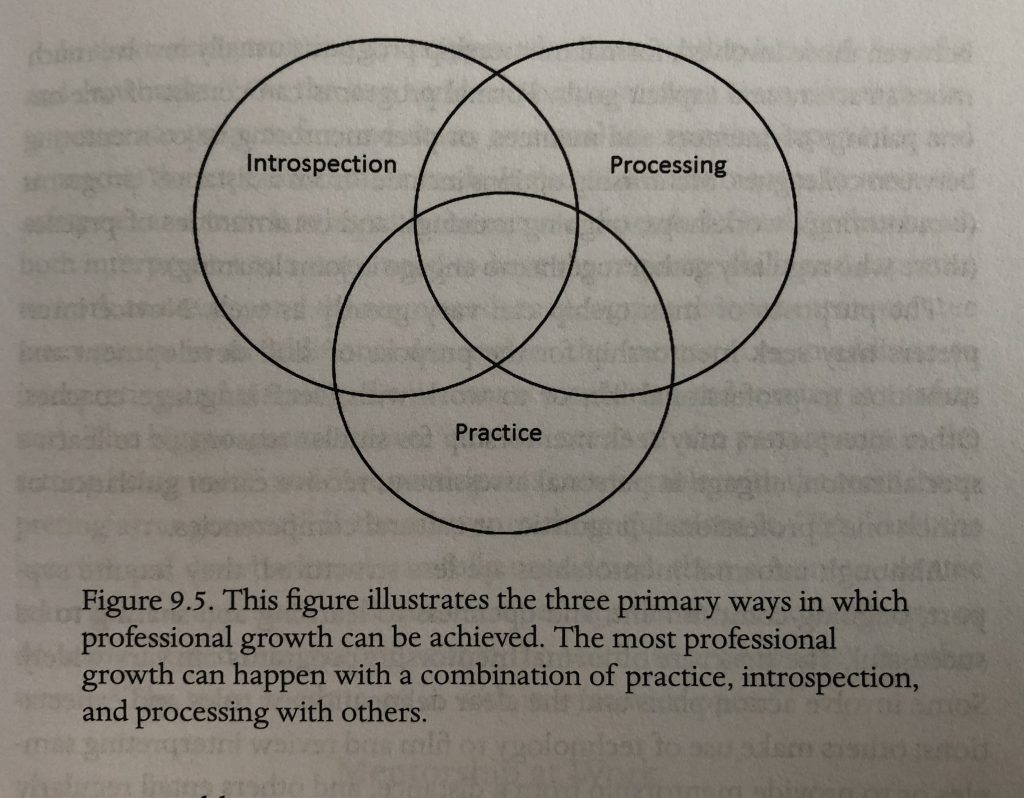
The following is taken from Chapter 9, Decision-making and processing with others, of Interpreting in the Zone: How the Conscious and Unconscious Function in Interpretation, by Jack Hoza
Professional Growth: The Sweet Spot
I propose that there are three primary ways in which interpreters can enhance their cognitive processing and engage in professional growth. They can do so in the following ways:
1. They can practice doing their work better,
2. they can be introspective about their work and think more about how to improve their work (by engaging in personal reflection), and
3. they can process their work with others to explore how to do their work better (by reflecting with others).
Practicing and being introspective are beneficial, but practicing and being introspective by themselves are not enough. Practicing on its own can reinforce habits that are already in place (reinforcing what is already in System 1), and being introspective on one’s own is limited by one’s own level of understanding. Professional growth, in terms of skill development and increased aha! moments, usually does not happen on one’s own. People need the input and stimulation of others in order to move beyond their own understanding and habits regarding their own skill level, cognitive processing, and decision-making. Others can help a professional better “connect the dots.” All three approaches—practicing, being introspective, and processing with others—represent the “sweet spot” for professional growth, as illustrated in Figure 9.5.
